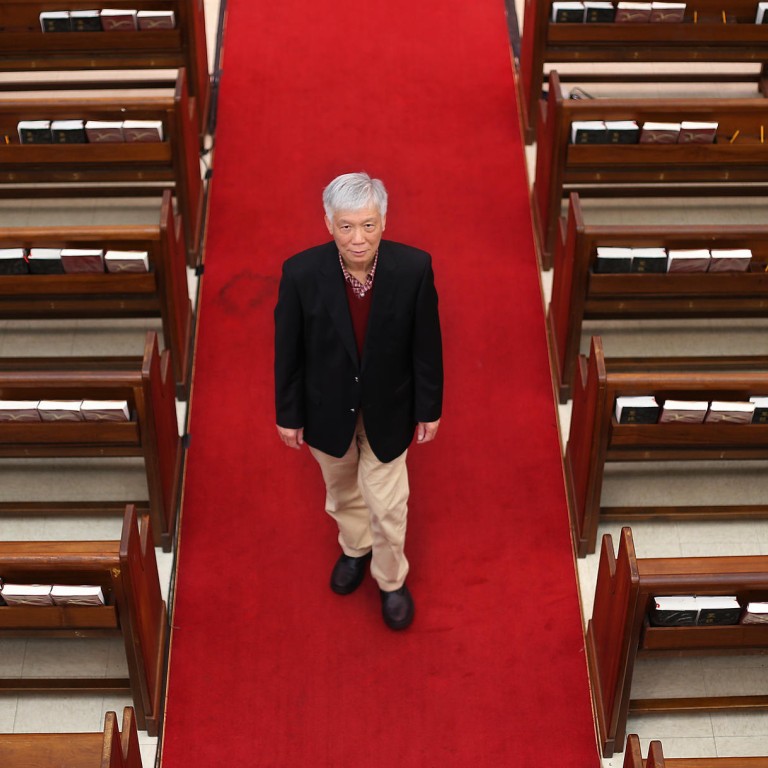
Democracy veteran: we'll never give up in Hong Kong
Reverend Chu Yiu-ming, who first took on Beijing in the 1980s, says the Occupy Central rally can kick-start civil disobedience in HK
A 30-year veteran of the city's struggle for democracy, Reverend Chu Yiu-ming, said he had exhausted all other means to achieve his goals before deciding to turn to the planned civil disobedience movement, Occupy Central.
While insisting the movement had no enemies, Chu, one of the three core organisers of the plan, warned their democratic struggle could "last for generations" if Beijing failed again to answer their calls.
Chu was among the activists pushing for democracy during the Sino-British negotiation in the 1980s. "They were the old days when we could meet senior mainland officials, such as former director of the State Council's Hong Kong and Macau Affairs Office Lu Ping , to air our demands," Chu said. The Tiananmen Square crackdown in 1989 shut down those avenues of communication.
Chu, alongside late veteran democrat Szeto Wah, takes part in a secret mission to help mainland activists flee the country. He remains a core member of the Hong Kong Alliance in Support of Patriotic Democratic Movements in China.
In 2004, Chu and a group of academics spent months working on a universal suffrage proposal for the chief executive election in 2007 and the Legislative Council election the next year.
Days before they planned to announce the proposal, the Standing Committee of the National People's Congress ruled out universal suffrage for 2007 and 2008.
Among those academics were Dr Benny Tai Yiu-ting, a University of Hong Kong law professor, and Chan Kin-man, a sociology professor at Chinese University. They, along with Chu, are leading the Occupy Central movement, which aims to mobilise at least 10,000 protesters next year to block roads in Central.
"The defeat in 2004 was the time when I decided that civil disobedience was the only way out," said Chu, who will turn 70 next year. "The struggle is not for our generation, but for the next ones."
He said the movement would act as a catalyst for a civil awakening that would encourage people to think carefully about the city's future. "I have heard piteous sounds of suffering and it is because the government is not looking after its people.
"But even a civil disobedience struggle must follow the principle of 'love and peace', and a road blockade will only be the last step of the movement," the Baptist minister said.
"We will be strictly disciplined in practising non-violent protest. We have no enemy. We have no hatred towards the regime. All we want is a political system that will reconnect the government and the people."
But he also warned the struggle would continue until Beijing met their demands.
"Today we have moderates like Benny Tai coming out to propose the Occupy Central plan. The next generation will also come out, like Benny Tai, should our demands for democracy not be met," he said.
Chu was also using the protest to urge Hongkongers to rethink their obsession with money - sometimes called "the Central value". "Man does not live on bread alone," he said. "It is the reason we are doing Occupy Central, not Occupy Western," where the central government's liaison office is located.
